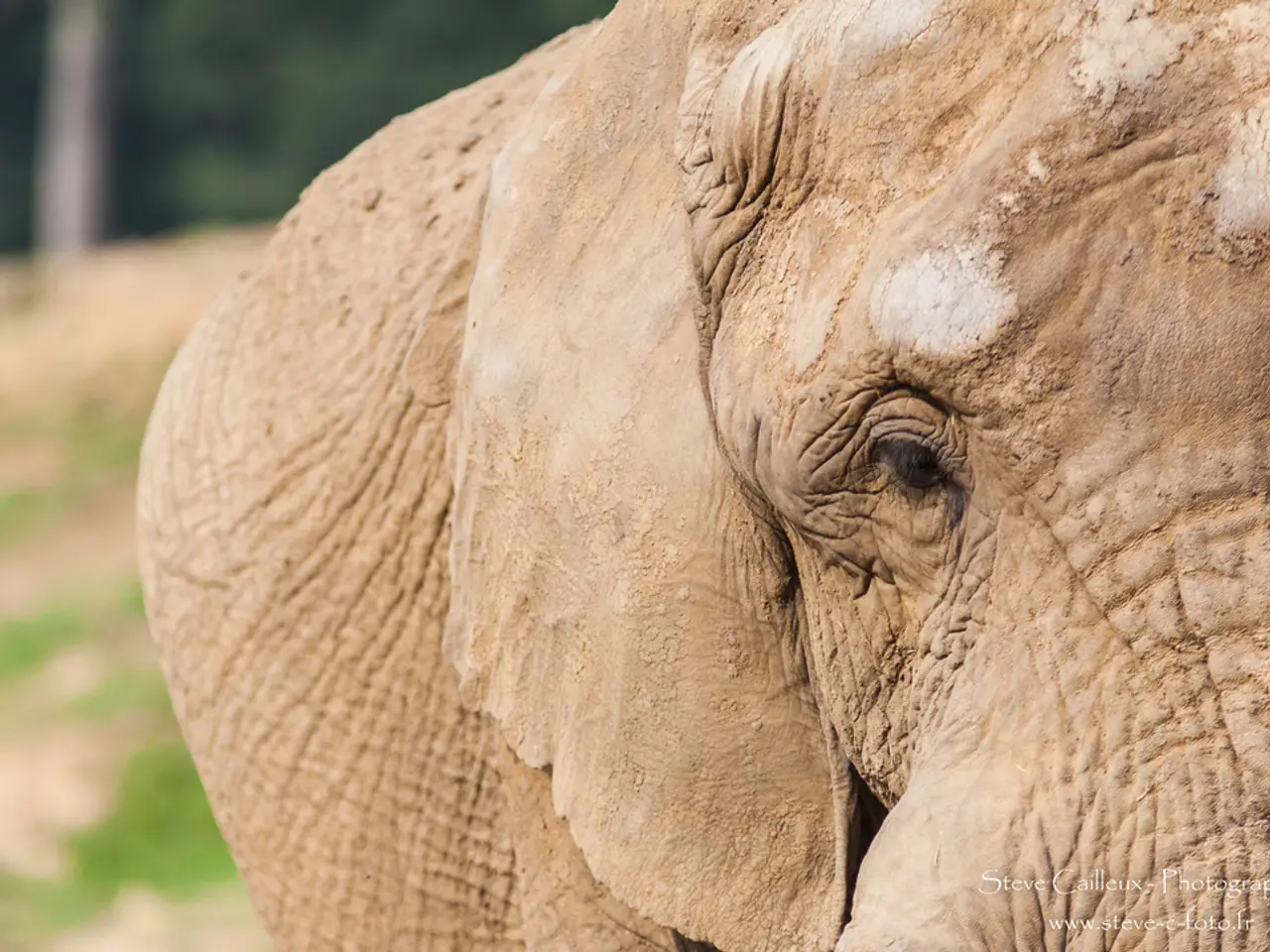Thai captive elephands struggle amidst a year devoid of tourism-induced income
Struggling Elephants Find Respite as Thailand Shifts Towards Ethical Sanctuaries
The COVID-19 pandemic and the subsequent decline in tourism have placed immense pressure on the welfare of elephants in Thailand, as many traditional camps relying on tourist activities faced economic hardships [1][2][3]. However, this crisis has spurred a significant shift towards ethical sanctuaries that prioritize the well-being of these majestic creatures.
Traditional elephant camps, which often promote riding and shows, have seen a decline in their numbers due to the drop in tourism. This has left some elephants facing neglect or poorer living conditions as their care heavily depends on income from tourists [1]. On the other hand, ethical elephant sanctuaries, such as Elephant Nature Park, BEES Sanctuary, Elephant Jungle Sanctuary, and Asian Elephant Projects, have gained prominence [2][3]. These organizations rescue elephants from harmful traditional tourism and logging industries, providing them with sanctuary where they can roam freely, socialize, and be cared for humanely without being ridden or forced to perform.
These sanctuaries emphasize non-exploitative interactions like walking alongside elephants, feeding, and bathing them without the use of harmful equipment like hooks or chains. They serve as both conservation hubs and educational centers, advocating for the elephants' long-term health and welfare [1][3].
Thailand’s wild Asian elephant population is declining, now estimated at only 3,000–4,000 individuals, making the work of these sanctuaries and rescue efforts all the more crucial [4]. Organizations such as the Wildlife Friends Foundation Thailand (WFFT) also contribute by running elephant refuges and wildlife rescue centers, further supporting elephants in need [5].
One example of a sanctuary making a difference is the Elephant Nature Park, home to 103 elephants, run by Lek Saengduean Chailert. The park received an influx of donations early in the pandemic, but as people faced their own financial burdens, the money tapered off. Despite this, Chailert has purchased 24 elephants from struggling camps and individual owners [2].
Another notable figure is Edwin Wiek, the founder and director of the Wildlife Friends Foundation Thailand, a sanctuary that houses 850 rescued animals, 29 of them elephants. The foundation has taken in six displaced elephants despite losing most of its income due to the pandemic [1].
Meanwhile, some mahouts who own their elephants have resorted to bringing them to beg at Buddhist temples around the country, while others are selling their elephants for exorbitant prices. For instance, the Sriracha Tiger Zoo in Chon Buri is selling elephants for 3 million baht each ($96,000) [1].
In response to the financial struggles faced by elephant owners in Surin and elsewhere, the Department of Livestock Development is gearing up to launch a program to help them plant seed to grow their own grasses [1]. The department has already provided 290 tons of hay to elephant camps in 22 Thai provinces since July 2020 [1].
Even elephant tourism hotspots like Maesa Elephant Camp, which spends at least $30,000 a month to feed 73 elephants (not including staff salaries, medicine, and vitamins), have had to adapt. Anchalee Kalmapijit, the owner of Maesa Elephant Camp, ended elephant riding and performances in late 2019 and transitioned to an elephant-friendly park. The camp now sells merchandise online, including T-shirts, organic coffee, souvenirs, and offers the option to "adopt" an elephant by contributing monthly to its care [3].
As Thailand plans to fully reopen Phuket in July and aims to expand the policy to other tourist hot spots by October, the future of ethical elephant sanctuaries remains uncertain. However, the shift towards ethical tourism and the growing awareness of elephant welfare are promising signs for these majestic creatures.
References:
[1] BBC News. (2021, February 18). Thailand's elephant sanctuaries struggle amid pandemic. Retrieved from https://www.bbc.com/news/world-asia-55864538
[2] CNN. (2020, November 11). Thailand's elephant sanctuaries are struggling during the pandemic. Retrieved from https://edition.cnn.com/travel/article/thailand-elephant-sanctuaries-struggling-pandemic/index.html
[3] National Geographic. (2021, February 17). Thailand's Elephant Sanctuaries Struggle Amid Pandemic. Retrieved from https://www.nationalgeographic.com/animals/article/thailands-elephant-sanctuaries-struggle-amid-pandemic
[4] World Wildlife Fund. (n.d.). Asian Elephants. Retrieved from https://www.worldwildlife.org/species/asian-elephant
[5] Wildlife Friends Foundation Thailand. (n.d.). What We Do. Retrieved from https://wfft.org/what-we-do/
- The shift towards ethical sanctuaries in Thailand, such as Elephant Nature Park and Wildlife Friends Foundation Thailand, prioritizes the well-being of elephants, offering them a habitat free from riding, shows, and harsh equipment.
- When traditional elephant camps suffer economically, wildlife organizations like Asian Elephant Projects and BEES Sanctuary become more crucial, rescuing elephants from logging and tourism industries and providing them with a safe environment for roaming, socializing, and proper nutrition.
- With an estimated Asian elephant population of 3,000-4,000 individuals, education and self-development focused on wildlife and nature becomes essential for their long-term health and welfare, potentially impacting general news and travel sectors simultaneously.
- Amid the crisis of declining tourism and financial instability in many elephant camps, some resort to selling their elephants to casinos and gambling establishments, exacerbating concerns about the mistreatment of these animals.
- Despite Thailand's plan to reopen tourist hotspots, the growth of ethical tourism and increasing awareness of elephant welfare fosters hope for the future, ensuring these majestic creatures will have a habitable and nurturing environment for generations to come.




